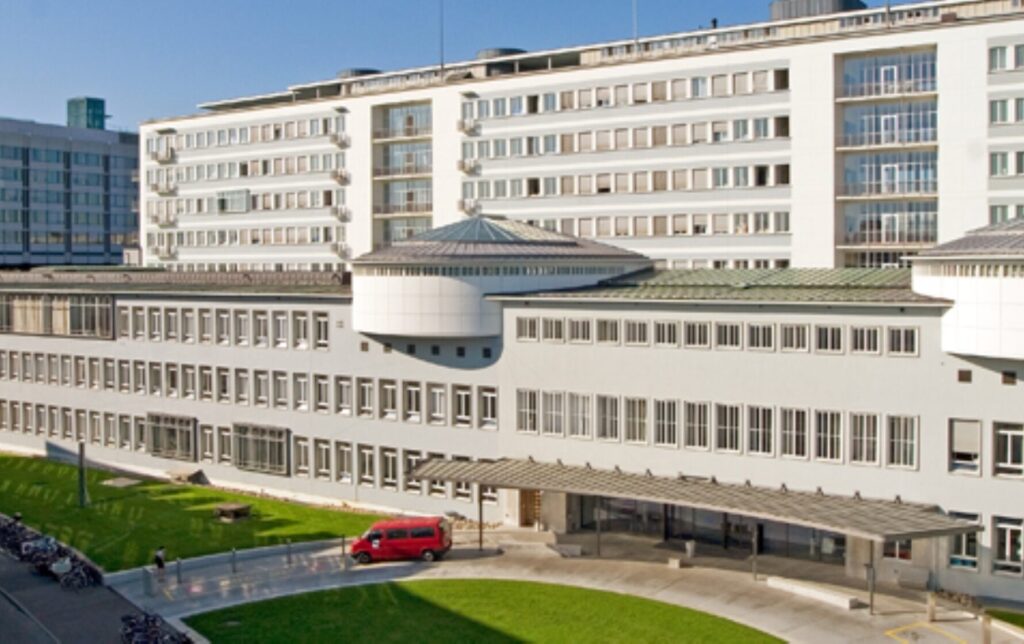A new study indicates that damage to the heart is more prevalent than previously believed after receiving Moderna’s COVID-19 booster shot. Researchers discovered that approximately one in 35 health care workers at a Swiss hospital showed signs of heart injury associated with the mRNA-1273 vaccine.
According to the researchers, about 2.8% of those vaccinated with mRNA-1273 experienced an elevation in markers of myocardial injury, a higher incidence compared to the estimated 0.0035% occurrence of myocarditis in hospitalized cases after the second vaccination. In a generally healthy population, the expected level of such effects would be around 1%.
The adverse effects were monitored for only 30 days, and half of those affected still exhibited unusually high levels of high-sensitivity cardiac troponin T at the follow-up. Cardiac troponin T is an indicator of subclinical heart damage. The potential long-term implications of these findings remain unclear, as there is limited research on individuals with heart injuries after messenger RNA vaccination, even though it is known to cause myocarditis and other forms of heart damage.
The lead researcher, Professor Christian Muller from University Hospital Basel, stated that the heart muscle may have limited regenerative capacity, and repeated booster vaccinations every year could potentially cause moderate damage to the heart muscle cells.
It is important to note that none of the patients experienced major adverse cardiac events like heart failure within 30 days of receiving the booster shot, and none showed electrocardiogram changes. The affected individuals were advised to avoid strenuous exercise, which may have helped mitigate more serious problems, as recommended by the researchers.
The study did not perform imaging to examine the participants’ hearts, even though many cardiologists suggest imaging in cases of suspected vaccine-induced myocarditis. Imaging could have revealed inflammation, which can lead to scarring or irregular heartbeat.
The researchers attributed the higher incidence of vaccine-associated heart injury to a lack of symptoms or mild symptoms, which may have caused previous cases to go unnoticed or unreported.
The study involved 777 workers at University Hospital Basel who received the Moderna booster shot between December 10, 2021, and February 10, 2022. Among them, 40 individuals had elevated levels of cardiac troponin, and 22 of them were determined to have “vaccine-associated myocardial injury.”
It is worth mentioning that the study had some limitations, including the lack of baseline levels and imaging. Other prospective studies examining myocarditis following Pfizer vaccination have also been reported, with some adolescents experiencing cardiovascular effects after the second Pfizer dose.
In conclusion, the study highlights the possibility of heart damage being more common than initially thought after receiving Moderna’s COVID-19 booster shot, especially in individuals with no history of heart disease. However, further research is needed to understand the long-term implications and mechanisms behind the vaccine-associated heart injury.
Abstract
Aims
To explore the incidence and potential mechanisms of oligosymptomatic myocardial injury following COVID-19 mRNA booster vaccination.
Methods and Results
Hospital employees scheduled to undergo mRNA-1273 booster vaccination were assessed for mRNA-1273 vaccination-associated myocardial injury, defined as acute dynamic increase in high-sensitivity cardiac troponin T (hs-cTnT) concentration above the sex-specific upper-limit of normal on day 3 (48-96 h) after vaccination without evidence of an alternative cause. To explore possible mechanisms, antibodies against IL-1RA, the SARS-CoV2-Nucleoprotein(NP) and -Spike(S1) proteins and an array of 14 inflammatory cytokines were quantified. Among 777 participants, median age 37 years, 69.5% women, 40 participants (5.1% [95%CI, 3.7%–7.0%]) had elevated hs-cTnT concentration on day 3 and mRNA-1273 vaccine-associated myocardial injury was adjudicated in 22 participants (2.8% [95%CI, 1.7%–4.3%]). Twenty cases occurred in women (3.7% [95%CI, 2.3%–5.7%]), two in men (0.8% [95%CI, 0.1%–3.0%]). Hs-cTnT-elevations were mild and only temporary. No patient had ECG-changes, and none developed major adverse cardiac events within 30 days (0% [95%CI, 0%–0.4%]). In the overall booster cohort, hs-cTnT concentrations (day 3; median 5 [IQR, 4–6] ng/L) were significantly higher compared to matched controls (n = 777, median 3 [IQR, 3–5] ng/L, p < 0.001). Cases had comparable systemic reactogenicity, concentrations of anti-IL-1RA, anti-NP, anti-S1, and markers quantifying systemic inflammation, but lower concentrations of IFN-λ1(IL-29) and GM-CSF versus persons without vaccine-associated myocardial injury.
Conclusion
mRNA-1273 vaccine-associated myocardial injury was more common than previously thought, being mild and transient, and more frequent in women versus men. The possible protective role of IFN-λ1(IL-29) and GM-CSF warrant further studies.
Source: https://onlinelibrary.wiley.com/doi/10.1002/ejhf.2978



